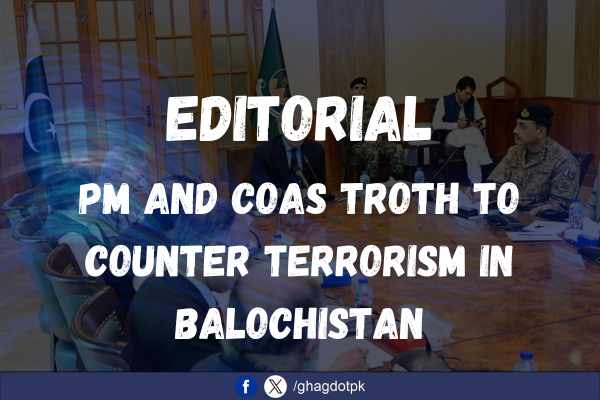The prime minister along with the head of the army, the interior minister, and the foreign minister accompanied with other federal cabinet members, traveled to Quetta to discuss a range of topics about the recent terrorist attacks in Balochistan. Several orders to address Balochistan’s administrative concerns were issued immediately in front of all federal and provincial officials. The day before, Commandant FC Moazzam Jah Ansari was appointed as Inspector General of Police Balochistan has also attended the meeting. Moazzam Jah Ansari has experience in dealing with terrorism. Therefore, the authorities concerned have high expectations from this appointment.
At the same time, there were reports that the forces not only increased their presence under the new strategy in different areas of Balochistan but also carried out several operations. Though its defense analysts took credit for recognizing India’s open intervention in Balochistan, the Indian media openly referred to this situation as Baloch’s resistance to Pakistan and China’s understanding and projects. However, in Pakistan, we did not see the kind of national narrative that is necessary in such dire circumstances. However, throughout the past few days, there have been roughly 9 instances of various terrorist assaults in various parts of Khyber Pakhtunkhwa, and as usual, the provincial government has shown no concern for the situation. A Lieutenant Colonel along with his two brothers, and a cousin were kidnapped at gunpoint by a group of Taliban while he was sitting in a mosque in his father’s Fatah Khawani in the Chief Minister’s home district of Dera Ismail Khan. The provincial government showed no reaction to the incident, and the “stage” of the provincial cabinet in Islamabad was decorated. His agenda did not involve the standoff situation. There was no decision or action taken in the cabinet regarding the ongoing situation. This attitude not only disappointed the public, but some serious spaces began to urge that the Governor’s rule be imposed based on the government’s “performance” and the province’s security condition.






